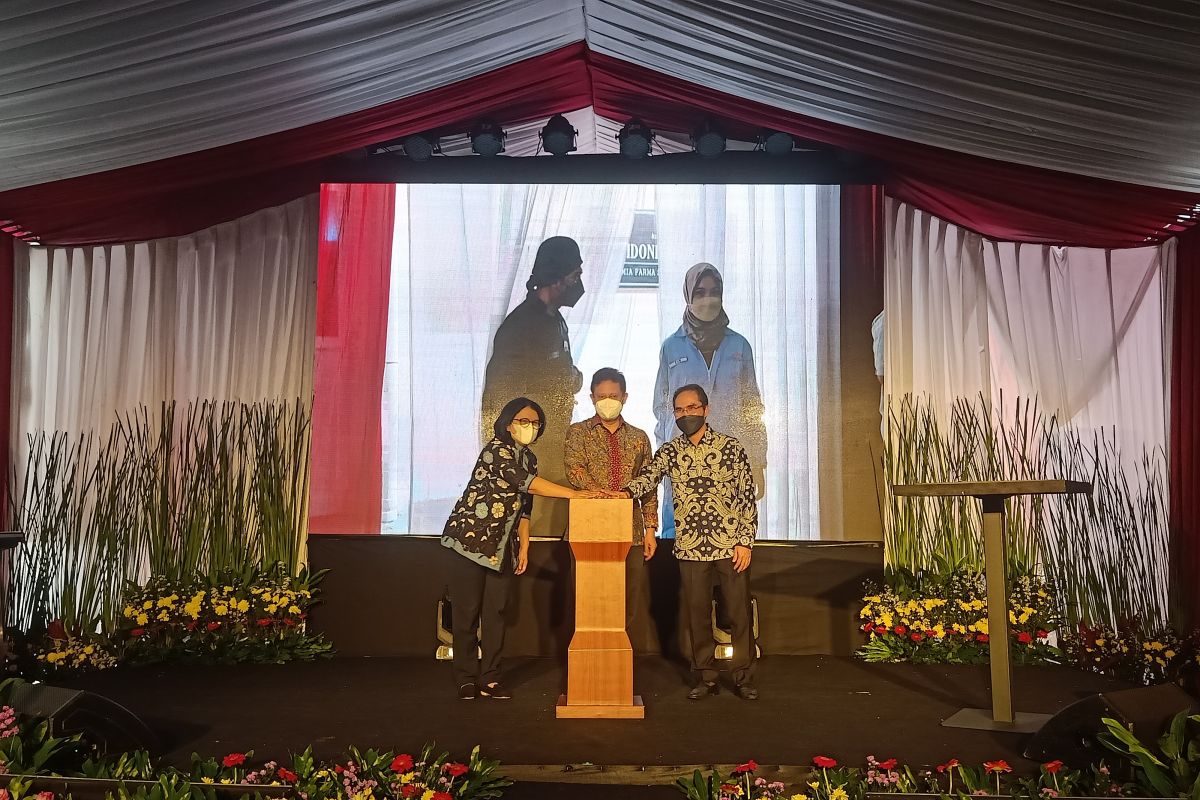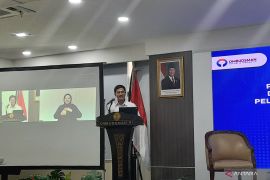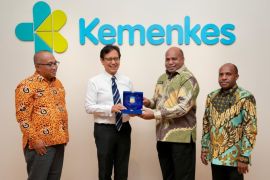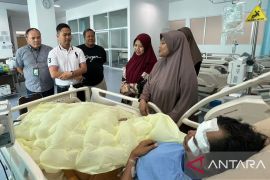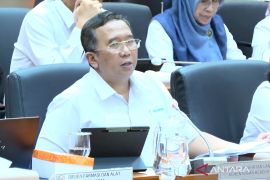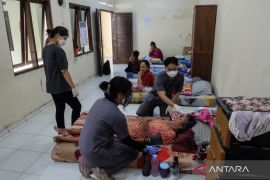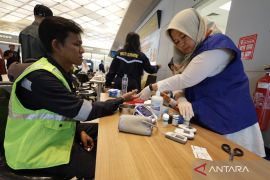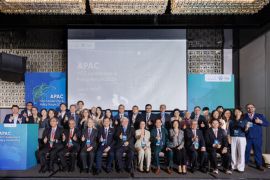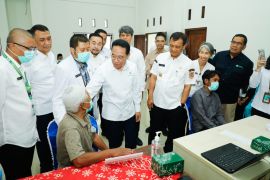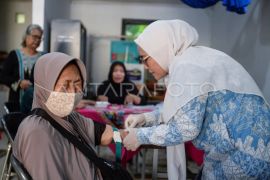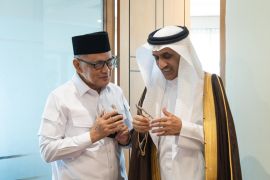"We used to 100 percent import that raw material. However, now, we can purchase it in our domestic market," Sadikin remarked after inaugurating the factory for raw materials for Povidone Iodine in Cikarang, West Java, on Thursday.
He noted that PT Kimia Farma Sungwun Pharmachopia Delta Silicone 1 Lippo Cikarang in West Java was able to produce the raw material for antiseptic wound cleansing.
The Povidone Iodine came from one of the mines owned by PT Kimia Farma in the East Java area to be produced for domestic consumers in Cikarang, West Java.
According to Sadikin, the import of medicinal raw materials had only benefited the overseas economic sector since it absorbed workforces in countries that produced the raw materials.
He analogized the import of Povidone Iodine to the production of nickel mining processed into steel.
"This is similar to nickel being turned into steel. Nickel is imported from Indonesia, being processed in another country and then returning to Indonesia in the form of steel. It is the other country that receives the added value. The labor is also absorbed outside," he pointed out.
The Health Ministry lauded PT Kimia Farma that has contributed to building domestic health resilience by utilizing domestic raw materials into finished products domestically.
Related news: Ministry allocates Rp394.5 billion for building pharmacy sufficiency
At the same event, President Director of PT Kimia Farma Honesti Basyir remarked that Povidone Iodine is part of the roadmap for the production of 24 domestic medicinal raw materials. A total of 12 of them have been produced, obtained certification, and declared halal.
These raw materials include Clopidogrel, Atorvastatin, Simvastatin, Atorvastatin, Clopidogrel, Efavirenz, and Entekavir.
"If Indonesia is now still importing more than 90 percent, PT Kimia Farma can reduce dependence on medicinal raw materials by up to 20 percent, with a target road map until 2026," Basyir remarked.
Related news: Pandemic forced reformation of national health sector: minister
Translator: Andi Firdaus, Resinta S
Editor: Rahmad Nasution
Copyright © ANTARA 2022
